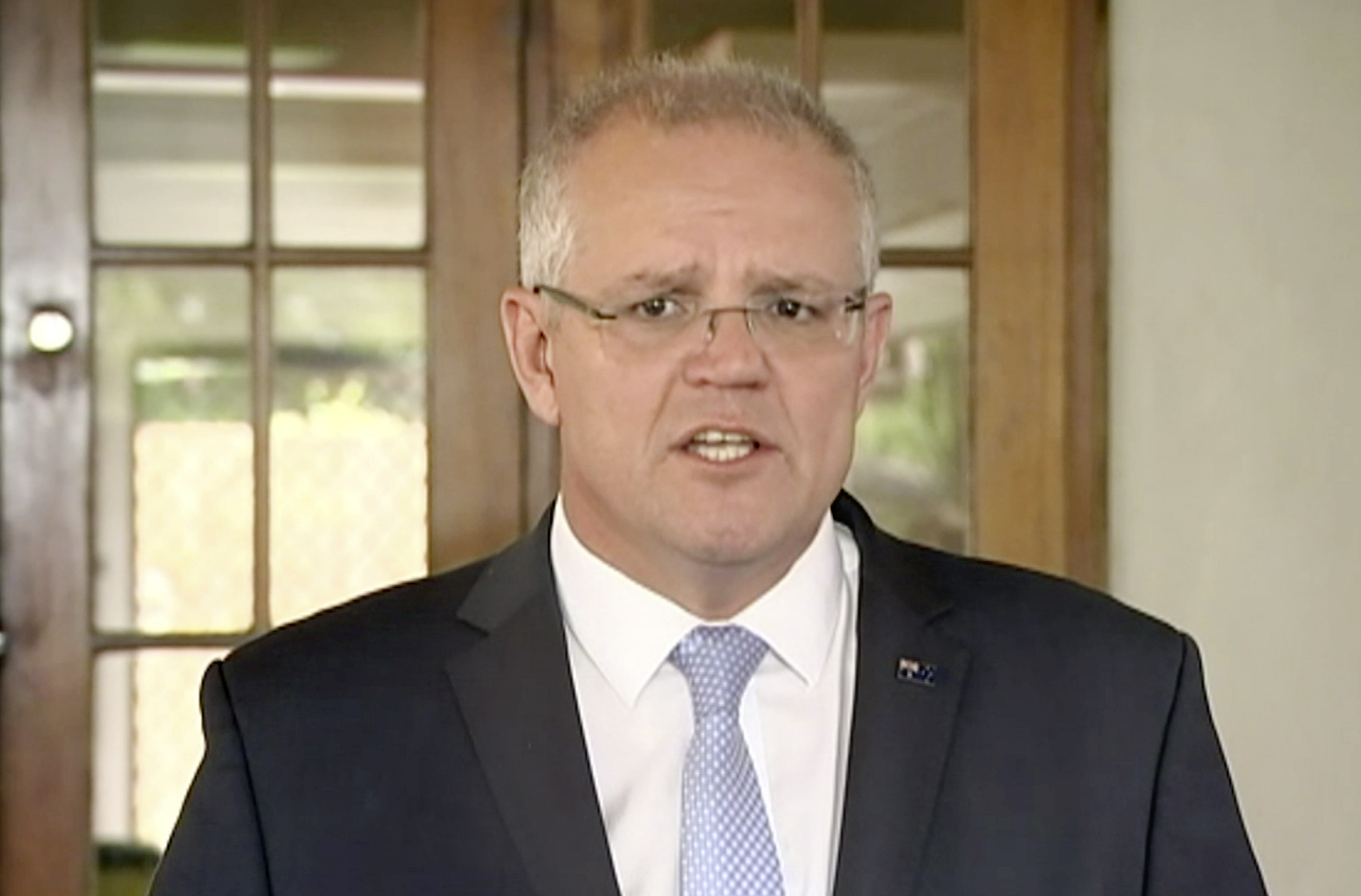
Australian leader says 2 Rwandans aren't massacre suspects
CANBERRA, Australia (AP) — Australia’s prime minister said on Friday that two Rwandan refugees who resettled in Australia after 15 years in U.S. detention are no longer suspects in the massacre of eight tourists in Uganda 20 years ago.
U.S. news outlet Politico reported that former Hutu rebels Leonidas Bimenyimana and Gregoire Nyaminani spent more than a decade in a Virginia state jail before Australia accepted them last year. The transfer was part of a refugee swap deal in which the United States agreed to resettle up to 1,250 refugees who Australia banishes to immigration camps on the poor Pacific island nations of Papua New Guinea and Nauru.
Prime Minister Scott Morrison said both men had been cleared of suspicion in the ax and machete slayings of four Britons, two Americans and two New Zealanders who were in a Ugandan wild park in 1999 to see mountain gorillas.
“These specific allegations were reviewed by our security agencies and by our immigration authorities and they were not found to be upheld,” Morrison said. “As a result, they were allowed to come to Australia.”
The questions over the potential threat posed by the refugees are embarrassing for a conservative government that is running for reelection on Saturday on a platform of tougher policies on border protection than their center-left Labor Party opponents. The government argues that Labor would allow criminals who traveled to Australia by boat without documentation to stay as refugees.
Morrison said both men had undergone security and character assessments as well as investigations into whether they were associated with war crimes.
Morrison said: “I know what the claims are. But the claims and facts are different.”
Relatives of the massacre victims are angry with the deal.
DeAnne Haubner Norton’s older brother Rob Haubner, 48, and sister-in-law Susan Miller, 42, were both senior executives of Intel Corp. from Oregon who were killed during their honeymoon.
Haubner Norton told Australian Broadcasting Corp. the refugee swap deal was “clearly bad and a dud.”
The two Rwandans “say, ‘I don’t want to go to Rwanda; I don’t want them to hurt me,'” Haubner Norton said. “Well, my brother was probably saying the same thing as (they) were taking a weapon to him.”
Scottish-born Australian David Roberts’ 23-year-old son Steven Roberts was also killed. The son was a British citizen who lived in the Australian city of Melbourne.
The father, who lives in the Australian city of Perth, called for whoever wins the election to review the decision to allow the Rwandans to settle in Australia.
Roberts said he found it hard to believe that Australia would accept two men with such serious allegations against them in return for refugees held on Papua New Guinea’s Manus Island who have no criminal pasts.
“The people they had on Manus Island were innocent people, they weren’t criminals or murderers,” Roberts said.
Senior Labor lawmaker Tony Burke said that if his party wins the election, his government would seek immediate briefings from security agencies “to find out what on earth has happened.”
After the 1999 massacre, U.S. prosecutors charged the men under terrorism statutes, extradited them from Rwanda and demanded federal deaths penalties. But a Washington judge ruled in 2006 that the men’s confessions were obtained through torture in Rwandan detention and the case was dropped.
The men had previously admitted to being members of the Congo-based Liberation Army of Rwanda, which has since changed its name to the Democratic Forces for the Liberation of Rwanda — a rebel group consisting of former Hutu militiamen and soldiers responsible for the 1994 genocide in Rwanda, and which continued to fight against the Tutsi-dominated government in Kigali. It is listed as a terrorist organization by the U.S.
Both men fought against being returned to Rwanda, but did not have a right to remain in the United States.
Former Prime Minister Malcolm Turnbull announced at former U.S. President Barack Obama’s Leaders’ Summit on Refugees in 2016 that Australia would participate in the U.S.-led program to resettle Central American refugees from a camp in Costa Rica. Australia also increased its refugee intake by 5,000 to 18,750 a year.
It later became apparent that Obama had agreed to accept Australia’s refugees who by then had been languishing on the Pacific islands for three years.
President Donald Trump reluctantly agreed to honor the deal, which he described as “dumb,” when he took office in 2017. But Trump promised the refugees would be subject to “extreme vetting” before they were accepted by the United States.
Fewer than 500 refugees have since found new homes in the United States under the deal.
The Western Journal has not reviewed this Associated Press story prior to publication. Therefore, it may contain editorial bias or may in some other way not meet our normal editorial standards. It is provided to our readers as a service from The Western Journal.
Truth and Accuracy
We are committed to truth and accuracy in all of our journalism. Read our editorial standards.
Advertise with The Western Journal and reach millions of highly engaged readers, while supporting our work. Advertise Today.












